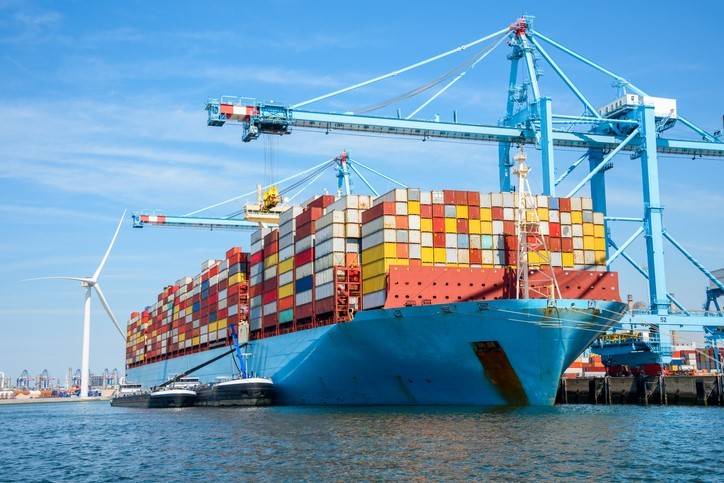
Image credit: Fitch Solutions
PETALING JAYA: Imports of festive items for the upcoming Chinese New Year are expected to experience minimal issues in the country despite disruptions to shipping routes.
Industry leaders said this is because most festive goods for this season are transported by ship or air from Far East regions such as South Korea, Japan, and particularly China.
However, they expressed concern about future exports and imports of goods to and from Asia and Europe due to ship attacks amid heightened geopolitical tensions, predicting more costs in rerouting, manpower and warehousing to maintain the flow of goods.
Shipping Association of Malaysia chairman Ooi Lean Hin said only goods travelling to and from Europe and the Red Sea will be affected.
“This is rather insignificant for the coming Chinese New Year.
“Most of the festive goods, including mandarin oranges, come from the Far East region, in particular China.
“We have minimal imports of festive items from the European region. Thus, limiting the impact of the disruption,” he said in an interview yesterday.
According to recent reports, major shipping companies stopped using Red Sea routes and the Suez Canal in December after Yemen’s Houthi militant group began targeting vessels in response to Israel’s war on Hamas in Gaza.The attacks have cut off access to the Suez Canal – the shortest shipping route between Asia and Europe.
Denmark-based Maersk, one of the world’s major cargo shipping companies, said on Dec 31 that it would delay all transits through the Red Sea for 48 hours after one of its container ships was hit by the militant group twice.
The Red Sea serves as the entry point for ships using the Suez Canal, which was opened in 1869.
It is one of the busiest canals globally, accounting for approximately 12% of global trade and playing a vital role in the movement of goods between Asia and Europe – in 2022, 23,583 ships used the canal.
Central America’s Panama Canal, another critical ocean-to-ocean waterway, is also facing restrictions due to drought.
Reports indicate that the canal’s water levels are too low for normal functioning, resulting in transit reductions that affect the supply of a wide range of goods.
Ooi mentioned that all exports and imports to and from Europe have been affected, with an expected increase in shipping costs.
“Ships now need to navigate around the African continent via the Cape of Good Hope to reach Europe.
“This adds about two weeks to the journey, resulting in higher costs and transit times,” he said.
Cargoes destined for Red Sea ports have also been affected, with rates increasing to as high as US$10,000 (RM45,950) per container due to navigation risks and higher insurance premiums.
“Charter rates for vessels willing to be deployed to these areas have also escalated,” he added.
Despite the United States-led security presence in the Red Sea area, Ooi said there is still a risk of vessels being targeted.
“The Maersk Hangchow was hit by Houthi missiles. The risk will persist as long as the war continues,” he said, adding that more countries committing to a Red Sea defence initiative would help mitigate the risk.
SME Association of Malaysia president Ding Hong Sing said the longer, rerouted sailing times means more costs in fuel, staffing and warehousing.
“The Suez Canal allows ships to make a much shorter journey between Asia and Europe, saving some 8,200km one way.
“Rerouting around the Cape route adds an extra 25% to 35% to sailing time, and an additional shipping charge of US$300 to US$500 (RM1,378 to RM2,297) per container.
“All these additional costs will be passed on to the consumers eventually,” he said.
Such a supply chain disruption, he said, can have dire consequences and negative effects on the supply of goods and national income, which some may not fully comprehend.
Ding noted that some festive items such as nuts and dried fruits imported from the Middle East may be affected by the shipping disruption.
“Some container vessels on a multiport sailing schedule may need more time as they stop at other ports before arriving in Malaysia and journeying on to other ports.
“One delay leads to more delays later, so the supply can be affected,” he said.
Ding said Malaysian exporters and importers anticipate an increase in shipping costs starting later this month if ships continue to be rerouted.
“An additional charge of 10% to 15% for new bookings made in December is a possibility,” he said.
Small and Medium Enterprises Association of Malaysia president Datuk William Ng said consumers can still enjoy Chinese New Year shopping as there will be no major disruptions to supplies for now.
He said the current blockages in the Panama and the Suez Canals have increased risks and caused delays in some goods destined for Europe and the United States.
“However, most of Malaysia’s imports pass through the Straits of Malacca, and exports are transhipped through Singapore, minimising immediate disruptions to trade,” he said.
However, Ng said the situation could change if the blockages continue, and also if tensions in the Taiwan Strait escalate in the lead-up to the Taiwanese presidential election later this month.
Source: https://www.thestar.com.my/news/nation/2024/01/02/canal-crisis-could-cost-us-more

